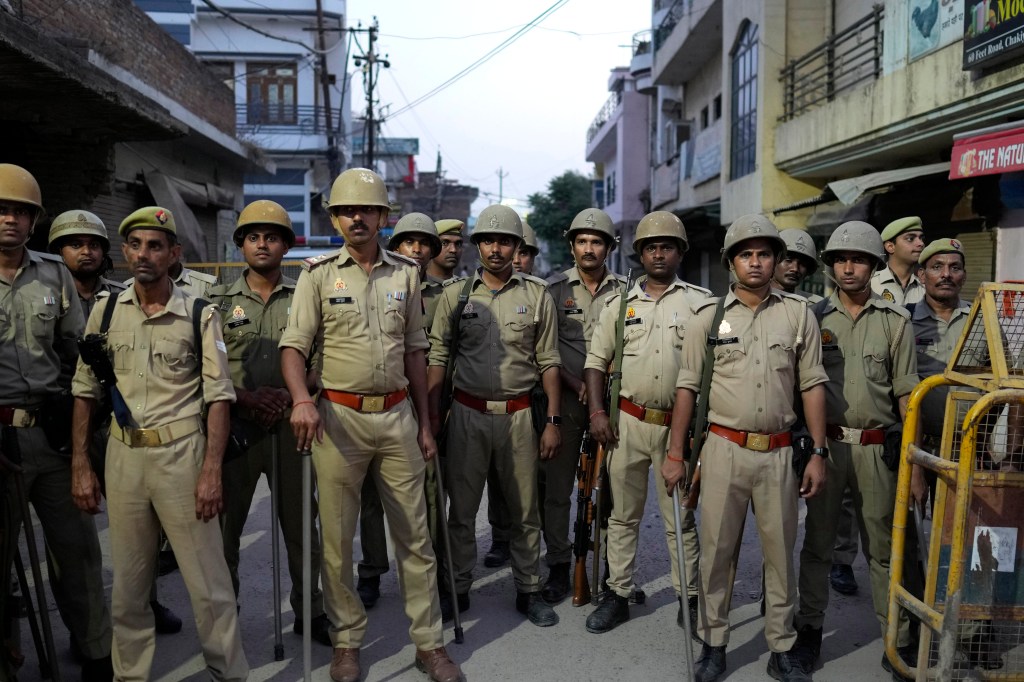In March 2023, India saw a number of attacks on press freedom, including the arrest of Kashmiri journalist Irfan Mehraj; the suspension in India of Twitter handles belonging to an outlet and at least three journalists; and death threats to journalist and fact-checker Mohammed Zubair.
On March 20, the National Investigation Agency, India’s counterterrorism body, arrested freelance journalist Irfan Mehraj under sections of the penal code and anti-terror Unlawful Activities (Prevention) Act, according to multiple news reports. He was arrested after responding to a summons for questioning at the NIA’s Srinagar office in Indian-administered Jammu and Kashmir.
In a March 21 press release, the NIA stated that Mehraj’s arrest concerned an investigation opened in October 2020 into non-governmental organizations allegedly funding terrorism. The press release alleged that Mehraj was working with the Kashmir-based human rights group Jammu and Kashmir Coalition of Civil Society and was a close associate of human rights defender and JKCCS coordinator Khurram Parvez, who has been imprisoned since November 2021.
Prior to his arrest, Mehraj was investigating the installation of surveillance cameras in Srinagar and the resilience of the Kashmiri Hindu community, according to a journalist familiar with the case, who spoke to CPJ by phone on the condition of anonymity due to fear of reprisal. Mehraj remained in jail as of June 13, 2023.
Following the publication of this article, two journalists and another person familiar with Mehraj’s case told CPJ that prior to his arrest, NIA officers repeatedly questioned him in relation to the terror-funding investigation and his journalistic work, including articles posted to the online outlet Wande Magazine, where he served as founding editor.
Authorities also pressured Mehraj to testify against Parvez, which he refused to do, those people told CPJ on the condition of anonymity, citing fear of reprisal.
Mehraj previously worked as a researcher with JKCCS but left the organization shortly following the October 2020 NIA raids on the offices and residences of several Kashmiri human rights defenders, including Parvez, those people said, adding that they believed authorities also targeted Mehraj due his critical journalism on Indian government policies and rights abuses, which included reports on extrajudicial killings and surveillance in Kashmir and the plight of Kashmiri Hindus.
He is also a part-time copy editor at the TwoCircle.net news website, which reports on issues throughout India, including caste discrimination, violence against Muslims, and right-wing Hindu groups.
CPJ’s email to the NIA did not receive a response.
Beginning on March 2, Mohammed Zubair, co-founder of Alt News, an independent fact-checking website based in Bengaluru, the capital of southwest Karnataka state, received an onslaught of threats from Hindu right-wing influencers on Twitter, according to news website The Wire and Zubair, who communicated with CPJ via messaging app.
The threats came after an Alt News report about a disinformation campaign about attacks on northern Indian migrant workers in the southern state of Tamil Nadu. They included demands for someone to attack Zubair and “extrajudicial steps” against Zubair and lasted for three days.
In June 2022, Zubair, who uses social media to fact-check false news, was arrested over a tweet allegedly “hurting religious sentiments.” He was released on bail in July following a Supreme Court order.
CPJ’s email to Praveen Sood, director general of the Karnataka police, did not receive a response. Bengaluru Police Commissioner Pratap Reddy told The Wire, “If Zubair approaches us, we will consider giving security based on the case.”
Beginning in mid-March, Twitter withheld in India the handles of BBC News Punjabi and at least three journalists based in Punjab state amid a government crackdown in which authorities shut down the internet while searching for Sikh separatist leader Amritpal Singh Sandhu, according to multiple news reports.
BBC News Punjabi’s handle was suspended in India early March 28 and was restored around six hours later. Indian officials said the government had not asked Twitter to suspend the outlet, but it was due to user reports.
The three journalists–Gagandeep Singh, bureau chief of the Punjabi-language broadcaster Pro Punjab TV; Kamaldeep Singh Brar, a journalist with the Indian Express newspaper; and freelance journalist Sandeep Singh–were reporting on the crackdown on Twitter before their handles were withheld in India. The journalists’ handles had not been restored as of April 19, according to CPJ’s review.
An independent journalist, speaking to technology news website Rest of the World on the condition of anonymity, that they received an email from Twitter indicating that their handle was withheld in the country following a “legal removal demand from the Government of India” for violating the Information Technology Act of 2000.
In January 2023, the Indian government ordered YouTube and Twitter to take down the first episode of the two-part BBC documentary investigating Indian Prime Minister Narendra Modi’s alleged role in the 2002 riots in Gujarat.
CPJ’s calls, emails, and app messages to those journalists and to Alkesh Kumar Sharma, secretary of India’s Ministry of Electronics and Information Technology, did not receive any response. Twitter responded to CPJ’s emailed request for comment with a poop emoji.
Editors’ note: This article has been updated to include more information on Mehraj’s case, and to correct the spelling of journalist Mohammed Zubair’s name.
